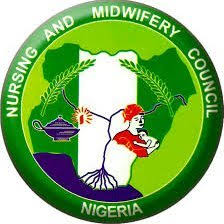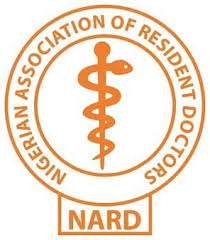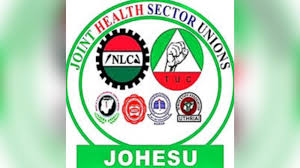Background
The 13th Annual Scientific Conference and All Fellows Congress of the National Postgraduate Medical College of Nigeria took place at the Imo Concorde Hotel, Owerri from Monday 13th to Friday 17th August 2018. The theme of the conference was: Current Challenges of Medical Education in Nigeria. The Sub-themes were: Impact of Clinical Research on Healthcare Delivery and Synergy Among Healthcare Practitioners. The opening ceremony was chaired by the Obi of Onitsha, Igwe Nnaemeka Alfred Achebe. The Prof. T.O. Ogunlesi lecture was delivered by the Chairman, Faculty of Family Dentistry, Prof. Juliana Obuntu Taiwo who gave an extensive update on ‘The Dignity of Life: Oral Health Care Till Death Do Us Part’. Dignitaries that graced the opening ceremony included the Imo State Governor, Owelle Rochas Okorocha, represented by the State Commissioner for Health, the Hon. Minister of State for Health, Dr. Osagie E. Ehanire, The Presidents of Sister Colleges, NUC Executive Secretary Prof. Abubakar Rasheed, Vice Chancellors, Provosts and Deans of Medical Colleges in Nigeria and Several CMDs. The leaders of Medical, Pharmacists, Nursing and Laboratory Scientists Association also graced the occasion.

Observations
Following the scientific presentations, extensive discussions, deliberations and debate, both at the pre-conference workshop, training, conference / congress, the following observations were made:
- It was observed that the pass rates for the fellowship examinations was low. The problems in the Part II examinations were identified to be those of Resident preparedness, supervision of the dissertation and mentoring of the residents. There is a need therefore to strengthen mentoring and supervision at this stage.
- It was observed that significant progress has been made by the College on digitization. The deployment of the eportal, online registration for exams, switch to CBT examinations and acquisition of an anti-plagiarism software are commendable.
- It was identified that there was a dearth of current and verifiable data base on healthcare issues in the country. Available data is driven by NGOs rather than national needs. Health research should focus on national health problems and research governance even when funded externally.
- The rivalry and unrest among the different components of the Health sector was frowned at. This absence of synergy has resulted in mutual suspicion, low productivity and reduced confidence in the overall system shortchanging the health and social well being of Nigerians. The leadership of healthcare Associations however expressed their willingness to work together.
- The recently signed Residency Training Act is yet to be made public for it be perused and implemented by relevant bodies including the National Postgraduate Medical College.
- Patients at the terminal stage of their illness do not only suffer from the disease process, they are also forced to undergo a lot of pain, distress and loss of dignity. This is totally avoidable.
- The current wave of brain drain has a marked deleterious effect on healthcare delivery in Nigeria. This has been encouraged by infrastructural decay, poor motivation, poor remuneration, reduced placement in residency training and low prospects of employment on completion of training.
- Funding for teaching hospitals has dropped below the level to maintain facilities. Funding of medical schools is poor. Funding for training of residents/specialists doctors is even poorer. The National Postgraduate Medical College of Nigeria is not spared. The cumulative effect of this is that the training of doctors and trainers is under great challenge.
- Fellow noted that the NUC recognizes Fellowship as the basic qualification required to offer specialist treatment and train medical students. Fellows also noted that PhD is optional and not required for progression for fellows in the Universities. The integration of the PhD into the Fellowship programme and the various routes to obtain the PhD during Residency training is also noted. The willingness of National Universities Commission (NUC) to adopt dialogue and negotiation in resolving the lingering PhD vs. Fellowship imbroglio is well appreciated.
Recommendations
Following fruitful deliberations at the workshop, conference and All Fellows Congress, the following recommendations were made:
- To improve on the pass rate at the Part II examinations all efforts should be made by trainers at the accredited hospitals by the national Postgraduate Medical College of Nigeria to ensure that residents are properly monitored, mentored and supervised throughout the period of training.
- The College is encouraged to continue the development of the computerization programme as this is the right way to do business. Fellows and Associate Fellows of the College are encouraged to key into the College computerization activities.
- The College is encouraged to engage the Federal Ministry of Health and all other relevant organizations to work out thematic research and methods of data gathering on national healthcare issues. The College was mandated to make its Computerization program robust enough to host the national data base when these data are generated.
- The conference endorsed the spirit of synergy in the health sector. The College through its affiliates should continue the work of promoting synergy so that the health sector can witness industrial peace and make progress.
- The National Postgraduate Medical College of Nigeria should get the approved Residency training Act and give effect to it as soon as possible.
- Palliative care of patients with terminal diseases should be given the necessary attention so that these patients may live with minimal distress and their dignity.
- The conference calls on the Federal, State and local governments to address the issues related to exist of Nigerian doctors by looking into and improving on placement of residents, remuneration, working conditions and employment of more doctors in our public institutions after completion of postgraduate Medical training.
- The conference calls on the government to increase its funding to the teaching hospitals, the residency training program and the National Postgraduate Medical College of Nigeria so that these bodies are able to meet their mandates.
- The College should positively consider the NUC suggestion to award degrees since the Act setting it provides for this function and it already has Faculties and a Senate. The MD degree should be considered first. Although it will not affect progression in the university system. PhD is highly recommended for Fellows in line with international best practices. Fellows should choose one of the four options possible to obtain their PhDs.
Appreciation
The College is immensely grateful to the Governor of Imo State, His Excellency Owelle Rochas Okorocha, the Honourable Minister of State for Health, Dr. Osagie E. Ehanire, the Obi of Onitsha, Igwe Alfred Nnaemeka Achebe, President and Past Presidents of the Postgraduate Medical Colleges, our distinguished Fellows, Chairman and members of local organizing committee, security agents, partners and supporters, all guests and participants.
God bless you all.
The 14th Annual Scientific Conference and All Fellows Congress hold in Abuja in September 2019. The National Postgraduate Medical College of Nigeria plans to celebrate its 50th anniversary as well as hold its convocation at the event in Abuja.
Dr. S. N. C. Anyanwu, FMCS
Chairman, LOC ASCAF 2018
Dr. Owoidoho Udofia, FMCPsych
College Registrar, NPMCN




